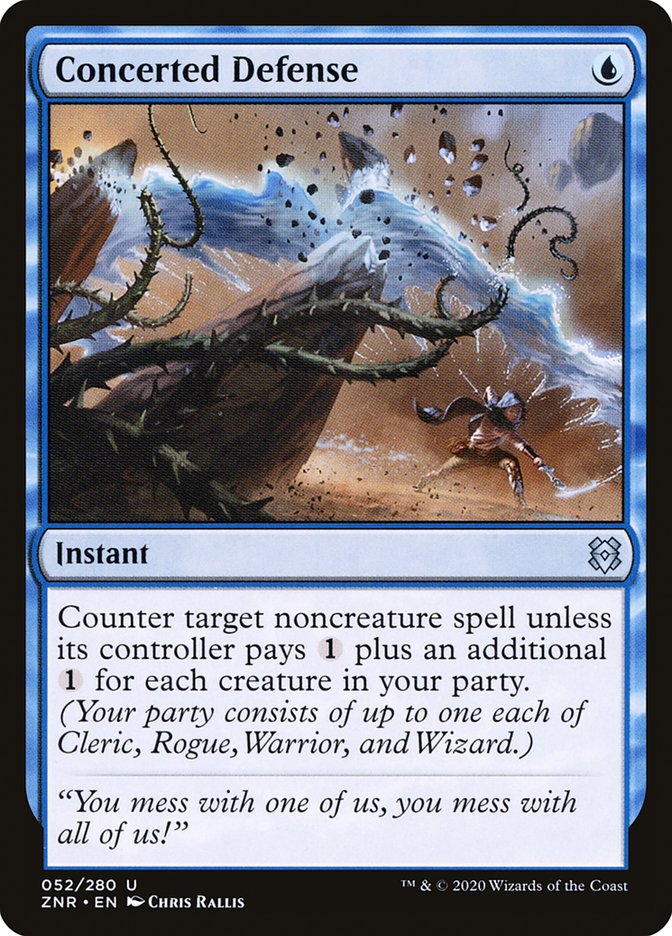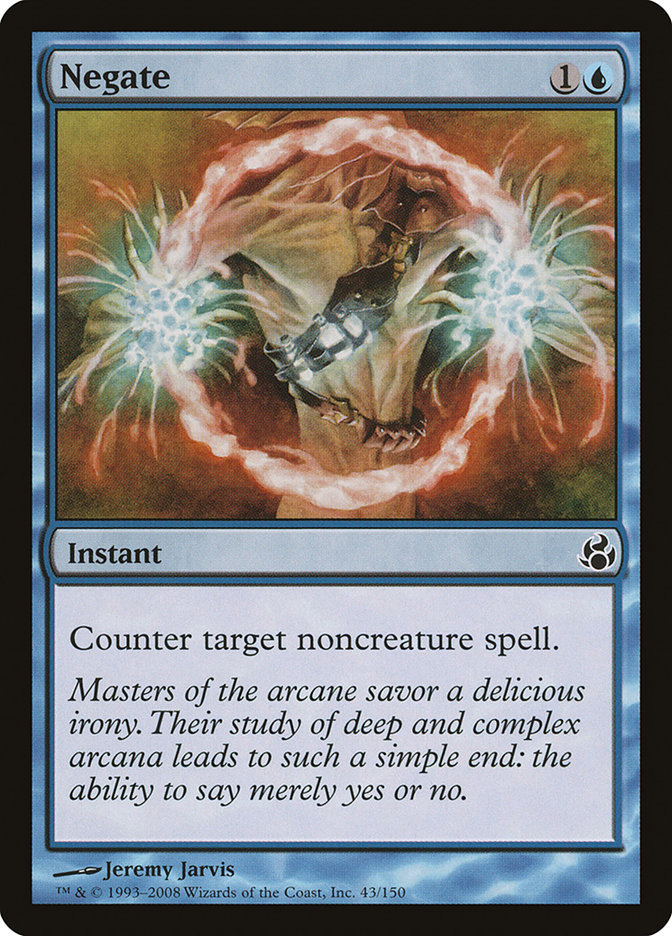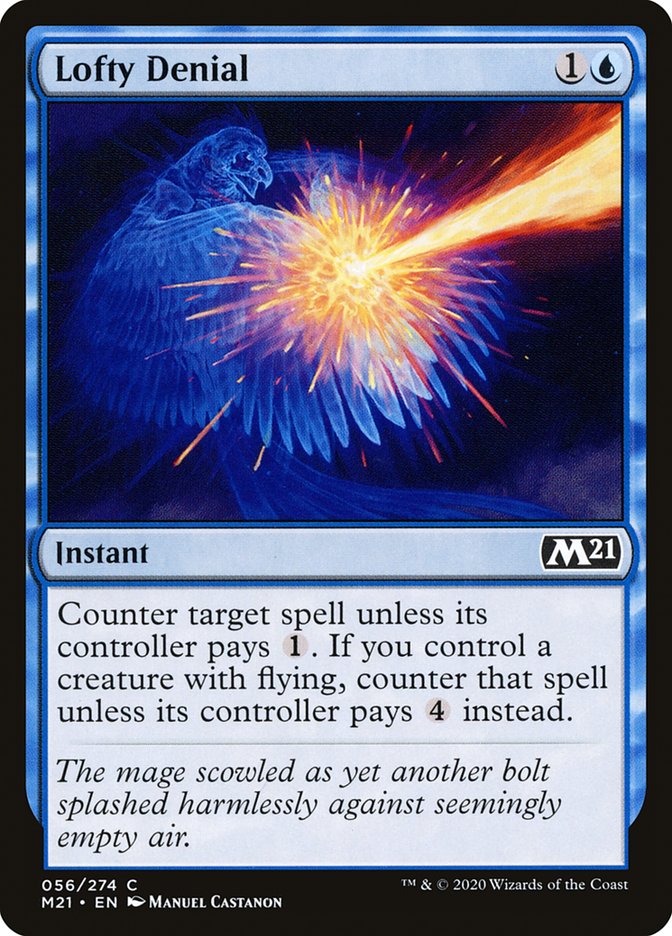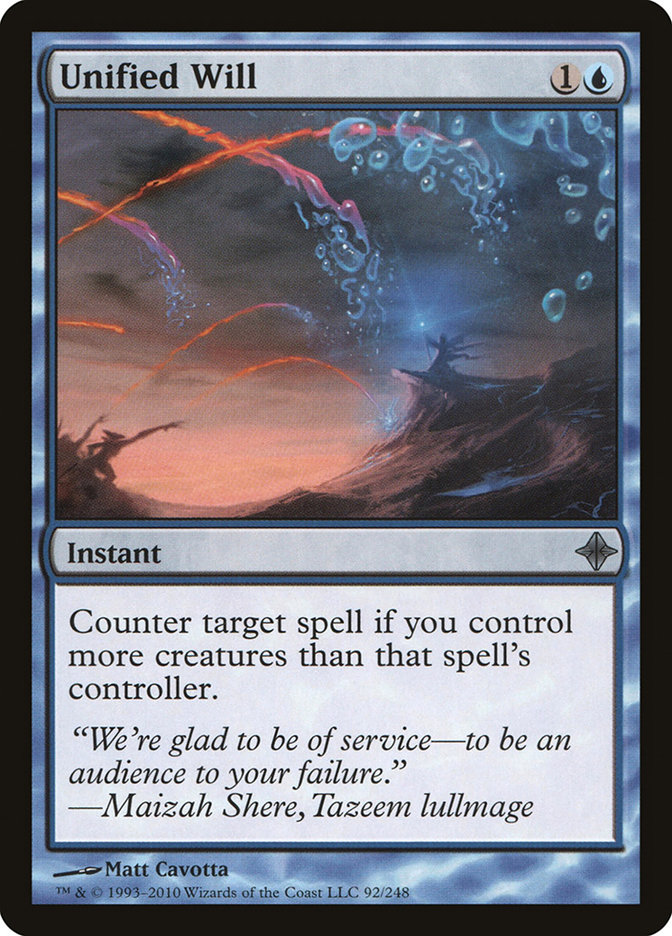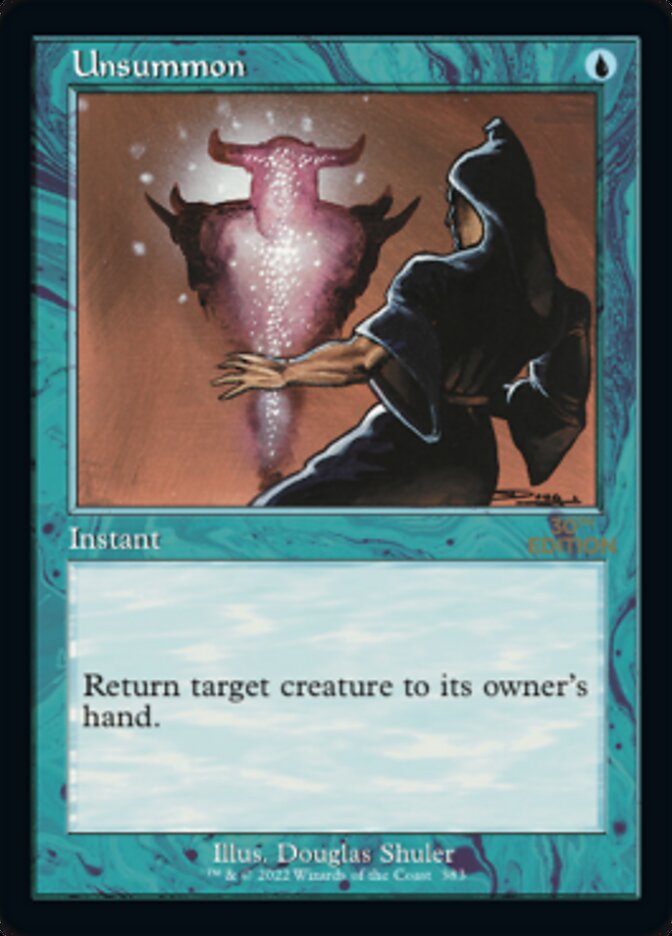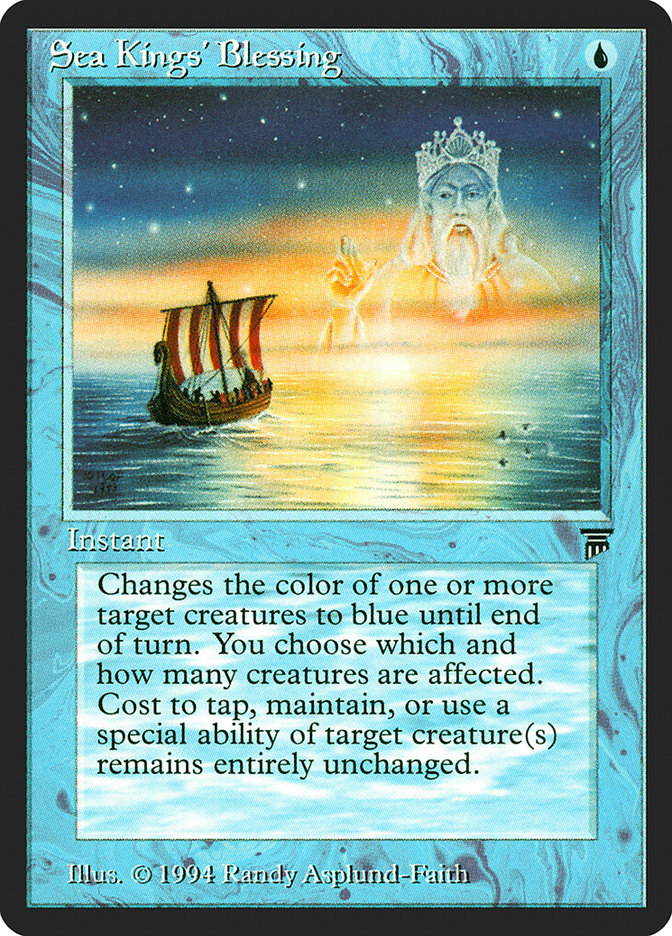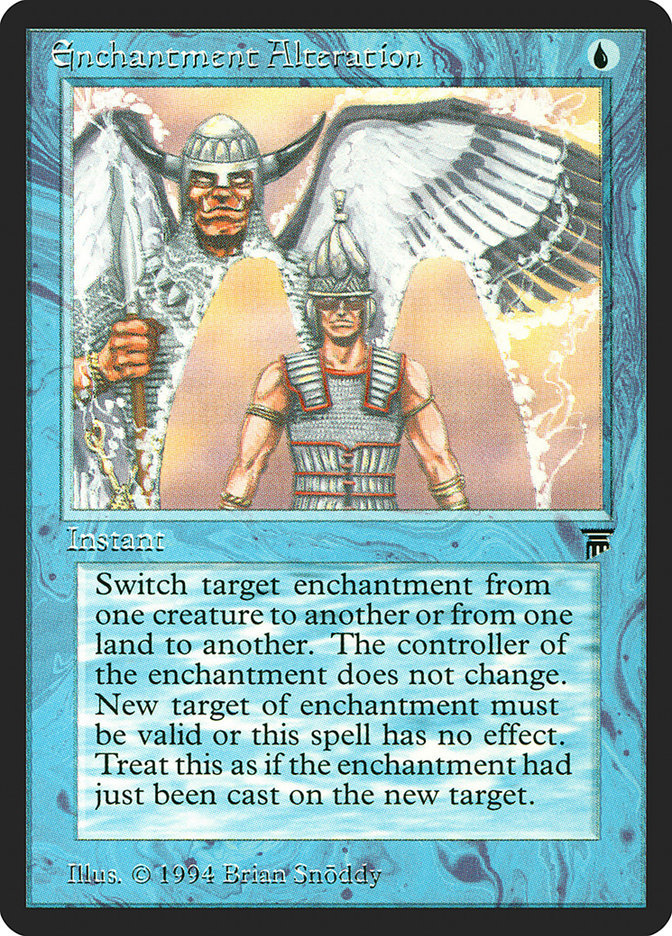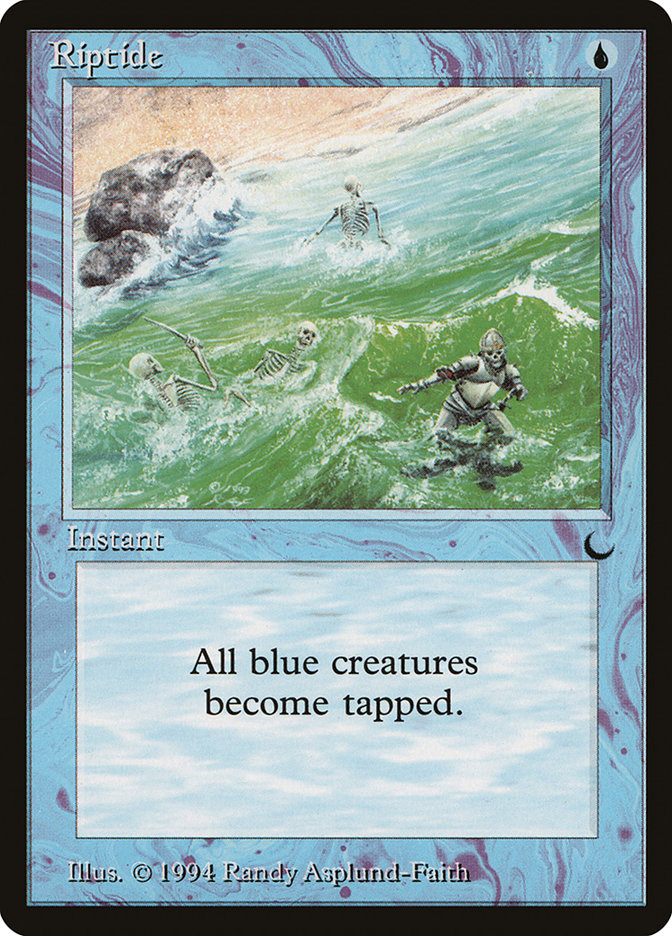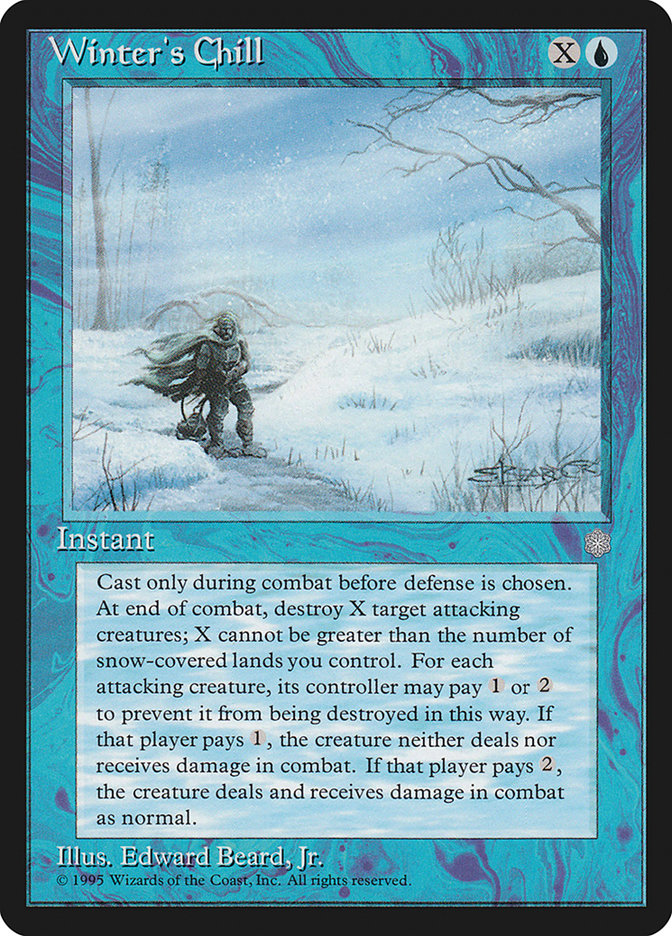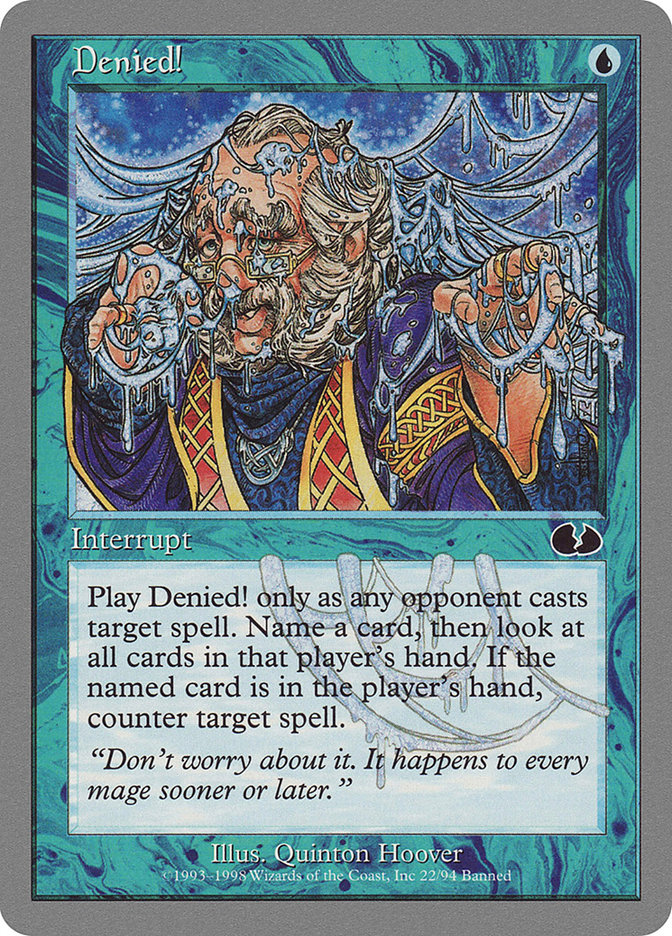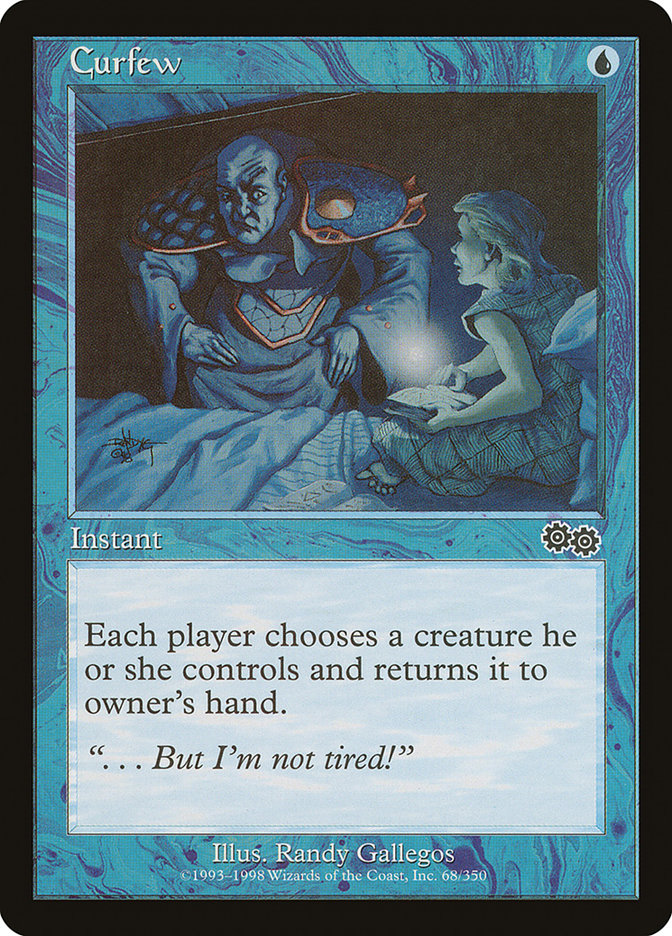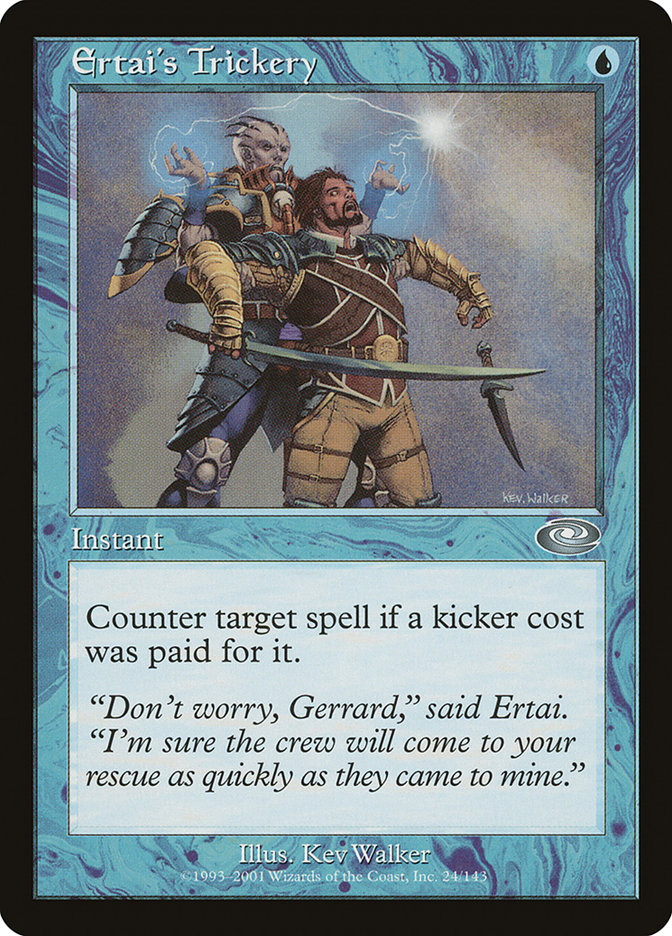Concerted Defense MTG Card
| Mana cost | |
| Converted mana cost | 1 |
| Rarity | Uncommon |
| Type | Instant |
| Released | 2020-09-25 |
| Set symbol | |
| Set name | Zendikar Rising |
| Set code | ZNR |
| Number | 52 |
| Frame | 2015 |
| Layout | Normal |
| Border | Black |
| Illustred by | Chris Rallis |
Text of card
Counter target noncreature spell unless its controller pays plus an additional for each creature in your party. (Your party consists of up to one each of Cleric, Rogue, Warrior, and Wizard.)
"You mess with one of us, you mess with all of us!"
Cards like Concerted Defense
Concerted Defense shines in the realm of Magic: The Gathering as a versatile counterspell with a party twist. Comparable to the classic Negate, which also counters noncreature spells, Concerted Defense adds flexibility by allowing you to pay one blue mana plus one additional mana for each party member you control. This potentially reduces its cost significantly in the right deck.
Lofty Denial is another card that shares some similarities; it counters a spell unless the opponent pays one mana, or four if you control a creature with flying. Both Concerted Defense and Lofty Denial provide strategic advantages in creature-centric decks, each with their nuances. Unified Will also falls into a similar category, relying on controlling more creatures than the opponent to counter a spell, which can be a more or less restrictive condition based on the board state.
In summary, while there are many options for countering spells in Magic: The Gathering, Concerted Defense presents itself as a particularly efficient choice for players leveraging a party-based deck, offering a low-cost counter alternative in the right circumstances.
Cards similar to Concerted Defense by color, type and mana cost
Decks using this card
MTG decks using Concerted Defense. Dig deeper into the strategy of decks, sideboard cards, list ideas and export to play in ARENA or MOL.
| # | Name | Format | Archetype | Event |
|---|---|---|---|---|
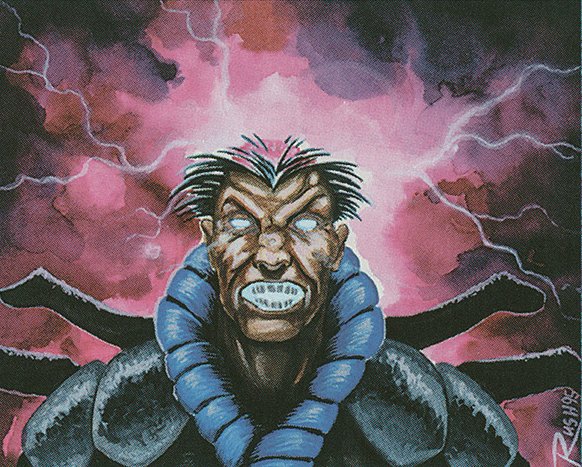 | Decklist | Free form | Holiday Night Magic | |
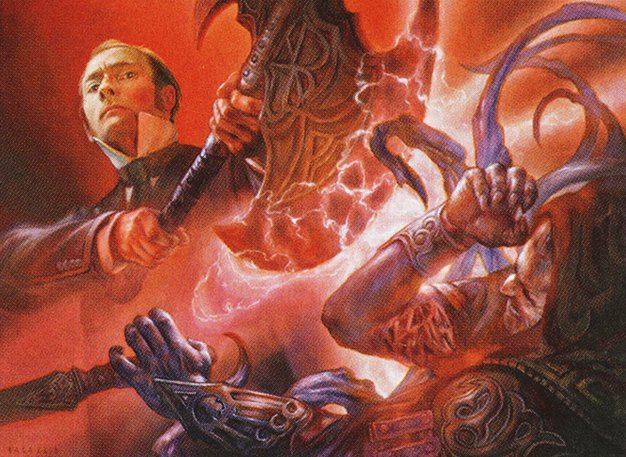 | Izzet Obosh | Pioneer | Izzet Obosh | Pioneer League 2023-12-02 |
Card Pros
Card Advantage: Concerted Defense offers the flexibility of countering spells that target you or a permanent you control. While it doesn’t directly draw you cards, thwarting an opponent’s key play can indirectly translate to card advantage—as it might protect your important creatures or other nonland permanents, thus maintaining your board presence and strategic upper hand.
Resource Acceleration: This card rewards you for playing a party-focused deck with an efficient cost. Each additional party member you control reduces the cost of the spell, effectively accelerating your ability to use resources for other actions within your turn or leaving mana available to cast additional spells in multiplayer settings.
Instant Speed: Concerted Defense’s instant speed is a critical tactical asset. It allows you to react to your opponent’s maneuvers, potentially disrupting their strategy at a crucial moment. This flexibility means you can keep mana open for the best possible timing, ensuring your defenses are up precisely when needed without compromising the pace of your own game plan.
Card Cons
Discard Requirement: One of the drawbacks of Concerted Defense is its reliance on having a party of creatures. Without a full party, the card’s effectiveness is significantly reduced, potentially leaving you at a disadvantage if you’re unable to meet this condition.
Specific Mana Cost: Concerted Defense’s blue mana requirement means that it is constrained in its deck compatibility. Players running multicolor decks without blue mana may find integrating this counter spell challenging, limiting its overall use to primarily blue or blue-inclusive decks.
Comparatively High Mana Cost: While Concerted Defense can be a powerful tool in the right circumstances, its mana cost in relation to its potential impact does draw into question. In situations where you do not have a full party, paying one mana for each creature type can quickly become expensive compared to other counter spells available in the game.
Reasons to Include Concerted Defense in Your Collection
Versatility: As an instant with a low mana cost, Concerted Defense provides flexibility to players, fitting snugly into decks that aim to protect key creatures or counter pivotal spells at critical moments.
Combo Potential: With its party mechanic, it synergizes well in decks that utilize multiple character types, potentially countering spells for a single blue mana and inspiring combinations with other party-centric cards for a strategic edge.
Meta-Relevance: This card shines in environments where cheap and effective counterspells are essential. Whether you’re fending off combo decks or interrupting the tempo of aggressive opponents, Concerted Defense adds a strategic layer to gameplay that can adapt to various meta shifts.
How to beat
Concerted Defense adds a strategic layer to the early game defense in Magic: The Gathering. Activating for just one blue mana, it can counter spells unless the spell’s controller pays an extra one mana for each creature in the controller’s party. While this card can be a surprise roadblock, particularly in party-centric decks, it is not insurmountable. The key to bypassing Concerted Defense’s effect lies in maintaining mana flexibility when casting spells that could turn the tide of the game.
To effectively overcome Concerted Defense, it’s crucial to anticipate this interruption, pacing your plays and holding back some mana whenever possible if you suspect your opponent has this card in hand. This approach ensures you can pay the additional cost imposed by Concerted Defense. It’s also helpful to prioritize the removal of your opponent’s party members, reducing the card’s effectiveness. When it comes to deck construction, consider including low-cost spells that can help clear the board or provide you with mana ramp to outpace the Defense’s taxing nature. By staying ahead in resources or by reducing your opponent’s party size, you greatly diminish the potential impact of Concerted Defense on your strategy.
Where to buy
If you're looking to purchase Concerted Defense MTG card by a specific set like Zendikar Rising, there are several reliable options to consider. One of the primary sources is your local game store, where you can often find booster packs, individual cards, and preconstructed decks from current and some past sets. They often offer the added benefit of a community where you can trade with other players.
For a broader inventory, particularly of older sets, online marketplaces like TCGPlayer, Card Kingdom and Card Market offer extensive selections and allow you to search for cards from specific sets. Larger e-commerce platforms like eBay and Amazon also have listings from various sellers, which can be a good place to look for sealed product and rare finds.
Additionally, Magic’s official site often has a store locator and retailer lists for finding Wizards of the Coast licensed products. Remember to check for authenticity and the condition of the cards when purchasing, especially from individual sellers on larger marketplaces.
Below is a list of some store websites where you can buy the Concerted Defense and other MTG cards:
 BUY NOW
BUY NOW BurnMana is an official partner of TCGPlayer
- eBay
- Card Kingdom
- Card Market
- Star City Games
- CoolStuffInc
- MTG Mint Card
- Hareruya
- Troll and Toad
- ABU Games
- Card Hoarder Magic Online
- MTGO Traders Magic Online
See MTG Products
Legalities
Magic the Gathering formats where Concerted Defense has restrictions
| Format | Legality |
|---|---|
| Historicbrawl | Legal |
| Commander | Legal |
| Historic | Legal |
| Legacy | Legal |
| Modern | Legal |
| Oathbreaker | Legal |
| Vintage | Legal |
| Duel | Legal |
| Explorer | Legal |
| Gladiator | Legal |
| Pioneer | Legal |
| Timeless | Legal |
Rules and information
The reference guide for Magic: The Gathering Concerted Defense card rulings provides official rulings, any errata issued, as well as a record of all the functional modifications that have occurred.
| Date | Text |
|---|---|
| 2020-09-25 | An ability referring to the number of creatures in your party gets a number from zero to four. Such abilities never ask which creatures are in your party, and you never have to designate specific creatures as being in your party. You can’t choose to exclude creatures from this count to lower the number. |
| 2020-09-25 | If a creature has more than one party creature type, and there are multiple ways to count that creature that could result in a different number of creatures in your party, the highest such number is used. For example, if you control a Cleric and a Cleric Wizard, the number of creatures in your party is two. You can’t choose to have it be just one by counting the Cleric Wizard first as a Cleric. |
| 2020-09-25 | To determine “the number of creatures in your party,” check whether you control a Cleric, whether you control a Rogue, whether you control a Warrior, and whether you control a Wizard. The number is the total number of those checks to which you answered yes. Each creature you control can be counted for only one of those checks. |
